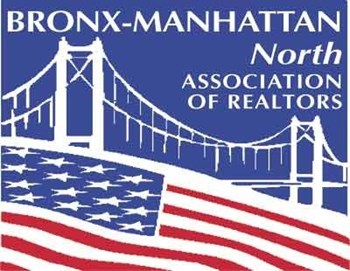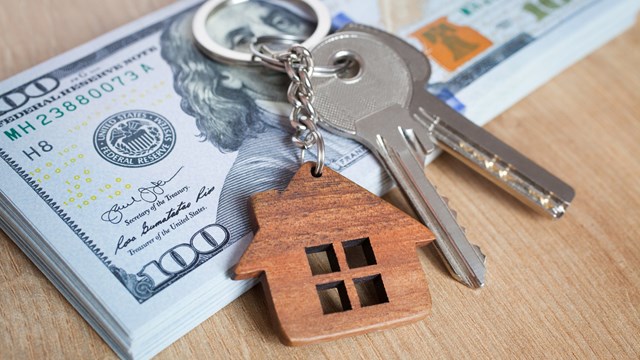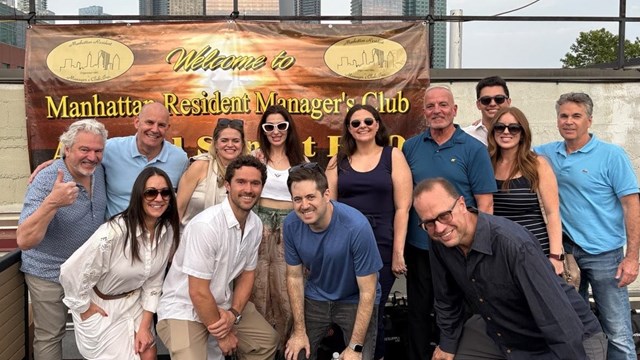
Trade groups and professional organizations are an excellent illustration of the old adage that “It’s not what you know, but who you know that makes the difference.” By joining trade organizations, professionals in any industry are afforded the opportunity to not only network with peers for their own benefit, but also to become an invaluable source of information and support to others.
Maintaining those networks and forging new connections is the mission of the Bronx-Manhattan North Association of Realtors (BMAR). The BMAR is a professional trade association that has officially represented the real estate industry since 1924, and is the local chapter for the New York State and National Association of Realtors (NAR).
Organizational Structure
According to Matthew Engel, BMAR's 2010 president, the organization is composed of a broad base of professionals including licensed real estate brokers and agents; multifamily property owners; building service vendors and suppliers; property managers; attorneys; appraisers; banks; mortgage companies; fuel service and energy companies; title and abstract companies; insurance companies and insurance brokers; contractors and other companies servicing the real estate industry.
The organization is run by many volunteers, including the president, treasurer and secretary, as well as vice presidents of the Bronx Residential Division, the Manhattan Residential Division, Owner Management, and the Commercial/Industrial Division. There is also a Board of Governors, but BMAR's Chief Executive Officer Nunzio Del Greco holds the only salaried position.
Mission and Roots
According to Del Greco, “We service not only the real estate industry but the business community throughout the New York metropolitan region. Our members are not just located in the Bronx and Manhattan, but we have members in Westchester, Long Island, and even Brooklyn. And we represent not only the real estate industry but the business community. Our membership is very broad-based. It includes licensed real estate brokers, licensed real estate attorneys, accountants, title companies, banks, mortgage companies, contractors, anyone that is affiliated or services the real estate industry can be active and has a networking home through BMAR.”
According to the association’s history, its roots actually predate its official founding in 1924. Back in 1825, there was the Real Estate Exchange, which had offices on Wall Street, and where brokers in New York City exchanged listings—essentially an early form of a Multiple Listing Service. There were a number of real estate boards organized after the turn of the 20th century, but many did not survive, despite a boom in population growth and attendant real estate market expansion.
The desire for stability and professional organization among brokers and other real estate professionals led to the first official meeting of the association (then named the Real Estate Board of the Bronx) on April 28, 1924. According to BMAR history, members of the group's earlier incarnations were consulted in the building of the Bruckner Expressway, Triborough Bridge, Cross Bronx Expressway, Co-op City, Fordham Plaza and many other significant developments. During World War II, the board was active in selling bonds. In 1949, it sponsored a radio series wherein realtors took to the airwaves to explain rental and housing issues to an audience of lay listeners.
An interesting side-note to mention might be that the group was not always known by today's name. The group kept its original name until 1973, when it became the Bronx Board of Realtors. In 2000, the board approved the group's current title, and BMAR was born.
Addressing Today’s Issues
“Essentially,” says Engel, “BMAR is a branch of the National Association of Realtors. Many of our goals are in line with the national organization which promotes private rights of home ownership, seeks to increase business in the real estate industry and allow for the best possible business climate among brokers and realtors. Our organization in the Bronx and Manhattan obviously has a focus on the owner/management division that is a little bit more expanded than other branches across the country that are obviously heavier on the home ownership [and] private home sales. Our organization specifically focuses on the NAR level, but also seeks to create a group for owner-managers and their affiliate members: various vendors that service the industry to create a forum to discuss business, talk shop, increase networking, learn about local legislation and what's going on.”
BMAR membership confers multiple benefits, Engel continues. For example, realtors can connect with lending industry pros, who in turn can help the realtors' property-seeking clients. Building owners and administrators can network with insurance carriers, fuel suppliers, and other vendors and service providers, making connections that can lead to cooperative business relationships on down the road.
Meeting the Membership
According to Engel, what sets a BMAR member in good standing apart from a non-affiliated real estate broker or sales agent is that BMAR members are bound by a code of ethics they must adhere to in order to remain members. Education and staying abreast of current industry news and trends are other ways BMAR members can distinguish themselves from the pack.
“We provide qualifying courses to people who want to get into the industry,” says Del Greco, “and also designation and continuing education courses for people who want to take it to the next level and attain a professional designation recognized at both the state level and national level. Some of those designations include Certified Property Manager (CPM), Graduate Realtor Institute (GRI), and CCIM which is a designation for commercial folks. There are a bunch of them. As the local chapter for the New York State and National Association of Realtors, we have [access] to www.realtor.com, which is the #1 real estate property state listing database in the world. People from all over the world have access to that. So if they're interested in buying or selling anything within our national jurisdiction, including Puerto Rico and Guam, it's really a great database.”
“Throughout the year, we have a number of small briefings, networking gatherings, breakfasts, and various speakers,” says Engel. “We have a Community Preservation Corps putting on a seminar on green buildings in May, and we also get very involved on the legislative end as well through our PAC, which is the political action committee that works on a larger level. I believe firmly that it's the responsibility of all the organization's membership to give back to the industry and to support initiatives, or go against initiatives that are going to potentially hurt the industry,” Engel continues. “I'm personally involved in a lot of legislation, and we're constantly striving to strengthen our realtor PAC and develop relationships with state, city and federal officials.”
Each year, the BMAR also holds a trade show with around 80 exhibitors from across the spectrum of the real estate industry, including real estate brokers, banks, insurance companies, oil suppliers, trade publications and other associations.
Facing Challenges, Moving Forward
As the impact of the recession has been felt across the real estate industry here and across the country, BMAR has had to adapt its approach to address the new landscape.
“Obviously the industry has had a difficult last two or three years, and keeping up membership in any organization has been challenging,” says Engel. “As a realtor's association, we're trying to promote individuals whose work is real estate transactions, so it's been very difficult with the overall number of transactions down significantly. But our slogan has been always 'network to success,' and we believe firmly that when times are difficult, that's the time to get out there, join associations, network and be a part of the industry. When everyone is making money, they can look all over the place. But when times are difficult, that's when you really band together and try to grow your business.”
“Networking is really crucial in today's world,” says Del Greco. “Say you or your company has a couple of hundred customers. It's physically impossible to go out and reach all of these customers. If you had to pick a customer one a week, you'd never finish. By attending one of our events, members get to see not only their existing customers but also potential new business contacts. So we're providing an important service.”
Engel adds that in his term as BMAR president, his goal is to expand the group's membership “Specifically,” he says, “I'm looking to increase our younger membership. One of the amazing things about our organization is we have membership that is chock full of second-, third- and fourth generation family businesses. But we've also got a lot of younger people like myself, and we're trying to build that base so that while we still have active membership that's been around for a long time, we're also bringing in new blood to reinvigorate the organization and come up with new ideas and new ways to network in a different world. So that's kind of one of my challenges.”
Del Greco agrees. "We try to be inclusive and try to always fine tune what we do to make things better. I think that's a really important goal to keep things fresh and to keep things from getting stale. I'm active on a state level and national level and a lot of different organizations and you can see some organizations that become stale. You have the same folks running every committee practically and there's no new ideas. By bringing in new people and being inclusive, you keep things fresh and people will feel like they have some input, and that's important."
Engel says that broad cross-section of professionals from the Board of Governors on down is one of BMAR's greatest assets. “One of my favorite things about the organization is its unbelievable diversity,” he says. “I'm on the executive committee of CHIP, I serve as a board of trustees on the Rent Stabilization Association. I'm a vice president on the Bronx Realty Advisory Board. So I'm involved in a lot of [real estate] organizations. And none has the diversity that BMAR does. If I was to look around the room at our 50-member Board of Governors, I would probably say it's 40 percent female, and at least 30 percent represent minority communities. We have governors who are in their 80s, and I'm 33 and the president of the organization. So we really have a tremendous diversity that I think gives the organization the ability to reinvigorate itself.”
In closing, Engel says that the organization is first and foremost based on service. “From cradle to grave, we start with doing programs providing education for people who are going into the industry. We work on continuing education, but also how to best hone your skills, to do business and to do so in a professional, ethical matter, which kind of separates our realtors from general real estate licensees out there. We pride ourselves on promoting a culture.”
For more information on the Bronx-Manhattan North Association of Realtors, visit www.bmar.org.
Lisa Iannucci is a freelance writer, published author and mother of three living in Poughkeepsie, New York. Additional research by David Chiu.






Leave a Comment